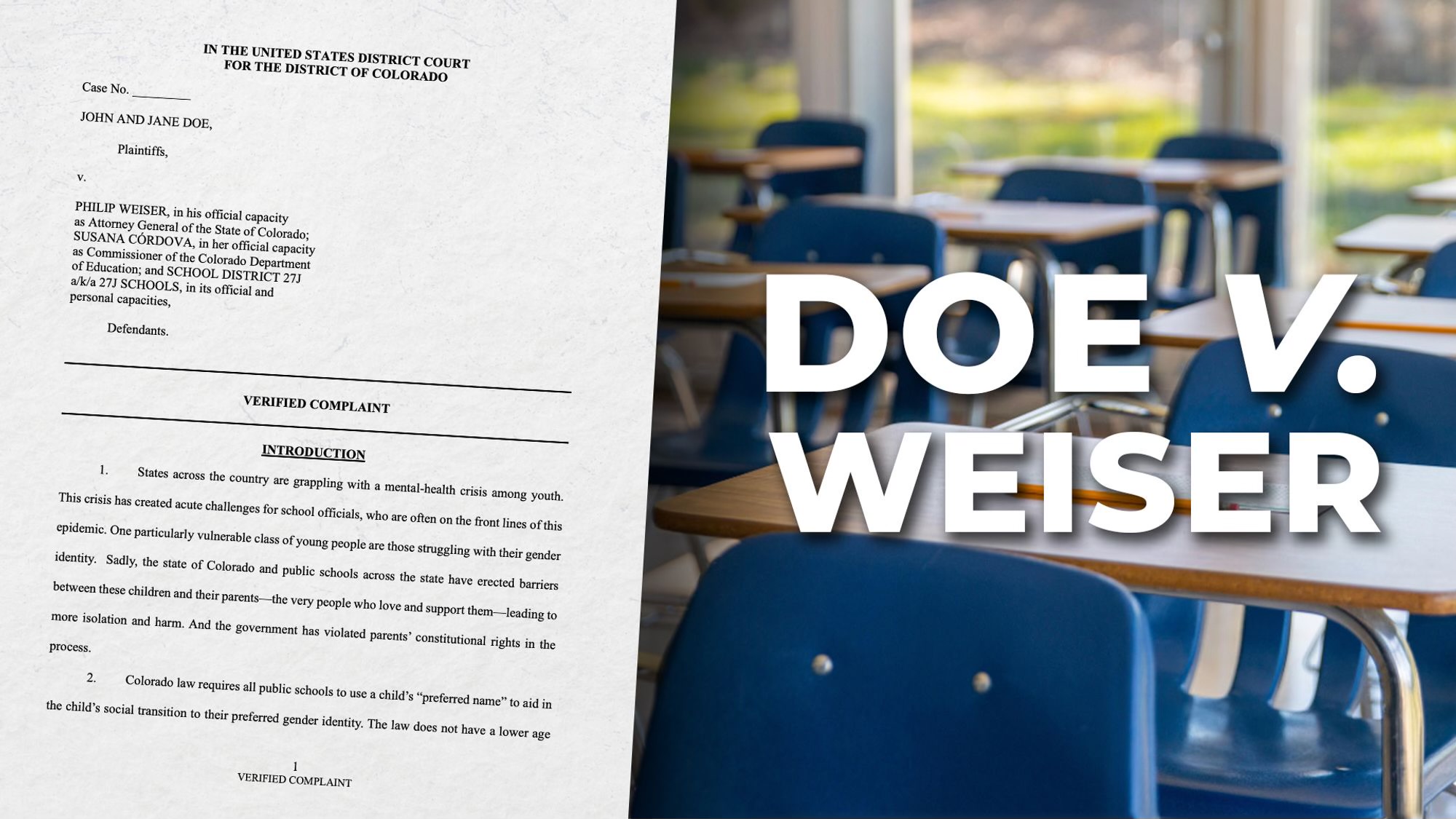08.07.2024 Plaintiffs’ Complaint
08.07.2024 Plaintiffs’ Motion for Preliminary Injunction
09.03.2024 Plaintiffs’ Reply in Support of Motion for Preliminary Injunction
10.22.2024 First Amended Verified Complaint
11.26.2024 Plaintiffs’ Response in Opposition to Defendants’ Motions to Dismiss
01.24.2025 Order Denying Motion for Preliminary Injunction
01.24.2025 Order Granting Defendants’ Motions to Dismiss
02.05.2025 Brief of Appellants Oral Argument Requested
Colorado schools are taking parental secrecy to an unconscionable level.
Schools used to require a signed permission slip before giving a child sunscreen. Today, Colorado’s parental secrecy policies enable “gender affirming” telemedicine without so much as a phone call to parents, much less consent from parents.
In a school district outside of Denver, Colorado, this is the reality parents are facing.
Our clients—who remain anonymous for fear of retaliation—discovered that their daughter was being transitioned to a boy at school behind their backs.
Their daughter, A.D. was in 9th grade, grappling with depression and anxiety, sought help from a school counselor. During their conversation, A.D. expressed gender dysphoric thoughts. The counselor then began affirming a new identity for A.D. as a male, going so far as to set A.D. up with telemedicine counseling sessions through the state-run I Matter counseling program that assisted in transitioning her gender identity from female to male.
All of this occurred without ever requesting permission from A.D.’s parents. The school never even notified them.
What’s more—the school counselor intentionally deceived A.D.’s parents about their daughter’s transition at school. The counselor called A.D.’s parents to let them know that their daughter was struggling with her mental health. During these conversations, the counselor used A.D.’s female pronouns instead of her “chosen” pronouns, and the counselor did not disclose that the school was socially transitioning A.D.
The school thought A.D.’s health was deteriorating enough to notify her parents but chose to hide what was likely the root cause of her problems—her “transition.”
Unfortunately, this deliberate deception on the part of schools is becoming more common across the country. School districts and states are implementing policies and laws that aim to remove parents from critical decisions in their kids’ lives.
Parents have a fundamental right under the Fourteenth Amendment to direct the upbringing of their kids. At a bare minimum, that includes being made aware of life-changing decisions being made at school. It certainly would prohibit a school guidance counselor from actively excluding a parent from such a decision, as was the situation for A.D.’s parents.
That’s why A.D.’s parents are taking legal action challenging the policies that enabled school administrators to transition their daughter without notification or consent.
Parental rights are under attack in all 50 states. Stand with us as we fight back.

